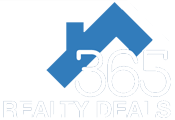
If you haven’t been paying attention, Mobile Home Parks are the single hottest asset class in the US.
Because mobile homes are thought of as a hassle and an eyesore for city officials, no one is able to get a mobile home building permit any time soon. That fact combined with the increase in demand for affordable housing due to the economic downturn has created a perfect storm for mobile home parks.
Not only has the increased demand and stagnant supply created a rare opportunity, the assets themselves are cash flow machines. As you probably assume, mobile home parks tend to be mismanaged by typical “mom and pop” owners who have owned the park for 40 years, rarely raised rents, and have let hidden expenses eat up their profits.
As you may know, commercial real estate is sold based on a multiple of income called the “CAP Rate”. CAP Rate is an expected rate of return on a real estate investment property based on the Net Operating Income that the property will generate if purchased in all cash.
Because commercial property values are based on income, if you are able to increase rents and decrease expenses, the value of your property increases exponentially.
Let’s take a look at the numbers of a typical deal you could find in this industry…
The lots are currently being rented for $250 each month, but the market rates are closer to $325.
The property manager is making $60,000 each year, and the market shows the property manager should be making closer to $28,000.
There is a mobile home park that contains 150 units and 100 of them are occupied (66.66% occupancy).
Let’s say that mobile home parks in the area are selling at 10% CAPs, and you have $10,000 a month in expenses.
$250 x 100 (lots) = $25,000 Monthly Gross Income – ($10,000 monthly expenses) = $15,000 Net Monthly Income x 12 months = $180,000 Net Annual income.
$180,000 / 0.1 (10% CAP) = $1,800,000 Property Value
So, let’s say you purchase this property at a 10% CAP for $1,800,000.
The first day you own the property, you will fire the property manager making $60,000 per year and hire new one at $28,000 per year. Even though replacing a property manager won’t cost you anything, it will have an immediate effect on your property’s Net Operating Income.
$60,000 – $28,000 = $32,000 increase in Annual Net Operating Income
The next step will be to begin to raise the rents. Because you want to be conservative and not cause too much tenant turnover, you take 18 months to raise the lot rent from $250 to $325.
+$75 per rented lot per month = $75 x 100 (lots) = $7,500 x 12 (months) = $90,000 increase in Annual Net Operating Income.
$180,000 (previous Net Operating Income) + $32,000 (from decreasing management expenses) + $90,000 (from increasing rent) = $302,000 new Net Operating Income
$302,000 /0.1 (10% CAP) = $3,020,000 New Property Value at a 10% CAP
The property value has now gone from $1,800,000 to $3,020,000 in less than 18 months.
Sound too good to be true?
It isn’t.
In fact, we didn’t even factor in what happens to the property value if you are able to get the vacancy rate from 33% down to 10-20%. (The numbers look even crazier!)
The truth is, there are hedge funds, asset teams, families, and other individual investors just like you finding deals like this every day.
Don’t miss out on this incredible opportunity to be involved in America’s #1 asset class.
